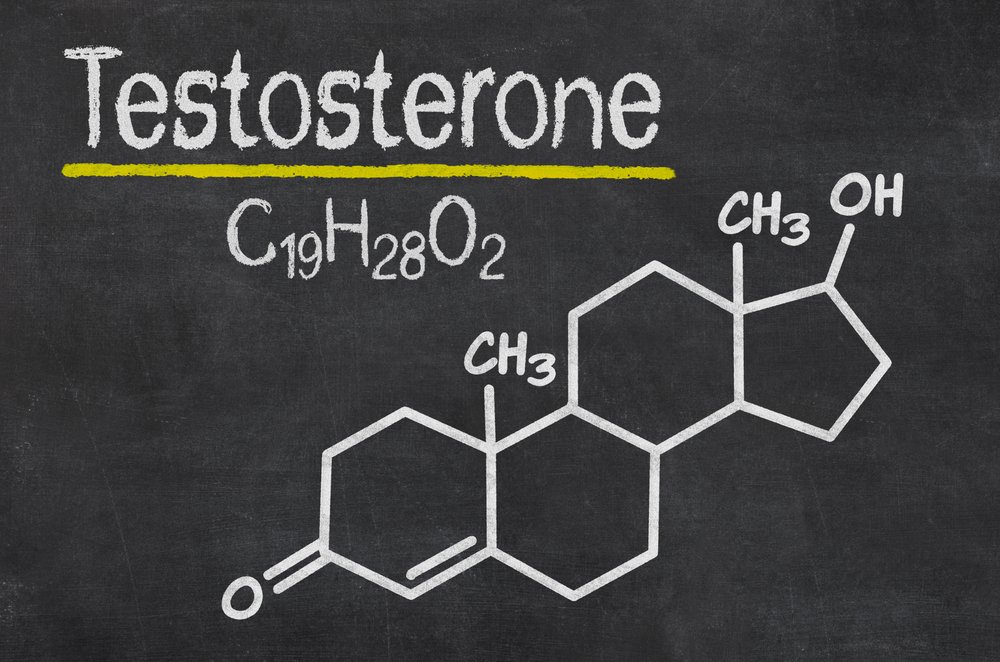One of the most common questions asked by my students is how can you increase testosterone levels without using steroids. This is a valid question because we all know that testosterone is the primary hormone responsible for muscle growth, sex drive, and oftentimes overall well-being in men. So no wonder guys want more of it.
What’s interesting though is the fact that there are also quite a few women who’d prefer to have higher testosterone levels. Their bodies of course also produce testosterone but in smaller amounts.
Want To Watch The Video Instead?
Which foods can we use to naturally increase our testosterone levels?
There are quite a few, but what you have to understand is that these strategies have limits. Many people who ask how to increase their testosterone are beginners looking for a fast and easy way to build more muscle.
Even though the strategies I’m going to talk about are proven to work they will not make you look like a bodybuilder or double the amount of muscle you can build within a month.
Much of your body’s ability to produce testosterone is limited by your genetics. So what we can try to do is to take advantage of your full potential, which will have a positive impact on your muscle gains and overall mood.
But don’t think of this as some sort of diet hack that will make you become the incredible hulk just from eating certain foods.
With that being said, here are some foods to increase your testosterone level.
1. Foods High In (Healthy) Fats – Nuts, Olive Oil, Avocados
Number 1 is any food high in unsaturated fats. This includes foods like olive oil, most nuts and avocados.
Dietary fat is extremely important for the production of hormones including testosterone. We know from various studies that diets low in fat can lead to lower testosterone levels, and diets higher in fat can increase testosterone levels.
Therefore, you want to make sure to include enough (healthy) sources of fats in your meal plan.
So, how much fat should you eat per day to make sure you are getting enough?
Most people want to get at the very least 15% – 20% of their overall calories from fats. This will ensure optimal health and performance. But if you want to test things out you can go a little higher until 30% to see if you notice any differences.
In theory, this fat could come from all kinds of fat sources, but most of us are getting too many saturated fats and too little unsaturated fats, so stick to the sources I outlined above.
2. Foods High In Vitamin D – Fatty Fish, Cheese, Eggs
Vitamin D is important for your immunity, bone health, mood and of course testosterone production.
Unfortunately, many Europeans and North Americans have vitamin D deficiencies especially during the winter so bringing your vitamin D level back to normal can help with testosterone production.
This can be done either through supplementation or by consuming high Vitamin D foods like fatty fish, beef liver, cheese and eggs. The only problem with these foods is that while they are high in vitamin D their content usually not enough to overcome a deficiency even if you consume them in high doses.
So if you do have a true deficiency, check with your doctor and maybe opt for the supplement also.
3. Foods High In Zinc – Red Meat, Dairy
Studies have shown a link between zinc deficiencies and decreased testosterone levels.
Increasing your zinc levels either through supplementation or by consuming more high zinc foods like red meat, seafood or dairy products will also raise your testosterone levels, but only if you are truly deficient.
In case you are already getting enough zinc, this strategy won’t benefit your much (at least not in regards to testosterone).
4. Brazil Nuts
Brazil nuts are technically seeds, but most people refer to them as nuts because of their shape and taste.
Brazil nuts are packed with selenium, which is directly linked to increased testosterone production and eating a few Brazil nuts a day will be enough to cover your selenium needs, naturally.
5. Limit Your Alcohol Intake
Last on the list is alcohol, which I want you to avoid of course. As you can probably imagine Large and excessive amounts of alcohol can potentially harm your testosterone levels.
So my advice is pretty straightforward here. Try to limit alcohol. You don’t have to stop drinking entirely but when you’re going to drink, stay within the realm of “moderate” alcohol consumption and you will probably be just fine.
For men, 20 grams of alcohol are considered the tolerable limit, which is little more than a regular beer. Women should stick to 10 grams a day.



